Staunton Hill Interview with Composer
Danish-born composer Jesper Kyd has created some of the most memorable, cinematic scores in interactive entertainment and his ability to constantly create new sounds for the visual medium is a trademark of his craft. Kyd's compelling and distinctive scores feature a diverse array of acoustic and symphonic orchestrations, hypnotic vocal performances and electronic manipulations immersed with an emotional depth often described by critics as 'rousing,' 'surreal' and 'beautiful.' His music for blockbusters such as ASSASSIN'S CREED and the HITMAN series has received awards and nominations from the British Academy of Film and Television Arts (BAFTA), Hollywood Music Awards and MTV Video Music Awards. Spanning from his iconic orchestral scores performed by the Budapest Symphony Orchestra and Hungarian Radio Choir on the HITMAN video games and the Billboard nominated hybrid choral score for FREEDOM FIGHTERS, to his epic Hollywood production scores for the best-selling new franchise ASSASSIN'S CREED, Jesper Kyd is a leading composer renowned for creating stylish and inspirational original soundtracks.
He was the definitive music artist to provide a rich and melodic musical palette for Ubisoft's flagship title, ASSASSIN'S CREED. Recorded with world class ethnic and percussion musicians and veteran Hollywood vocalists, Kyd's atmospheric score delivered a deeply spiritual aesthetic with Hollywood flair for which he was nominated at The Hollywood Music Awards, picked up his second BAFTA nomination and was awarded the ELAN Award (Canadian Awards for the Electronic & Animated Arts) for Best Original Music.
For ASSASSIN'S CREED II, Kyd has taken the music in an adventurous new direction and crafted an immensely diverse, melodic and progressive musical palette. The music propels the action, captures the allure and mystery of the story and immerses players in the breathtakingly detailed settings. The score was recorded with A-List musicians and a Hollywood orchestra and choir at the world-renowned Capitol Studios in Los Angeles.
Kyd also writes for film and television productions including the original soundtrack to STAUNTON HILL (Batpack Studios / Anchor Bay Entertainment), a visceral thriller directed by G. Cameron Romero, the son of legendary cult filmmaker George A. Romero. To portray the rustic and unhinging experience of Romero's STAUNTON HILL, Kyd composed a gripping guitar-based instrumental score manipulated with industrial sounds and subversive ambience. The score evokes a deep sense of isolation and impending breakdown which spirals into distorted frenzy.
His other recent scoring assignments include THE RESISTANCE pilot TV series (Starz Media) produced by Sam Raimi's Ghost House Pictures and the First Person Role Playing Shooter BORDERLANDS (Gearbox/2K). Kyd is currently working on several unannounced film and game score projects as well as recording collaborations with veteran engineer/producer Jeff Blenkinsopp (The Secret Machines, Pink Floyd, The Who, ELP, Vangelis). He resides in Burbank, California and is represented by the Gorfaine-Schwartz Agency. For more information visit www.jesperkyd.com and www.myspace.com/jesperkyd
Hi Jesper, I just wanted to start off by saying that I really enjoyed your score for Staunton Hill. It was refreshing to watch an independent low-budget horror movie and be knocked off your chair by the musical elements.
Thanks man, glad to hear you liked it :)
How did you get involved with the film?
I have known Cameron [director of Staunton Hill] for some years and we have wanted to work together on music. Cameron asked me to score the film and the timing was good.
It's interesting because you seem to capture the essence of the visuals in Staunton Hill. I think its very rare when music adds to the overall ambience. How did you achieve this fusion?
It probably comes from my background in scoring cinematic video games. I have scored over 40 games but Staunton Hill is only my 7th film score. So I have spent a lot of time scoring for moods, which is often what you end up doing in games. When I started scoring films a few years ago I had to expand upon my music style and adapt my techniques to a different visual experience.
What inspired you to create the music? And, are there any films or composers that you used as a template?
I only had 3 weeks to write the score and that included recording live performances, so I didn't have time to do a lot of research. This was fine though, since I knew exactly what I wanted to create.
How was your working relationship with the director Cameron Romero? Did he have a blueprint of what he wanted or did he give you complete artistic freedom?
Cameron gave me complete creative freedom, and a lot of the ideas for the score are inspired by the many talks we had about the movie.
What is your musical approach when scoring a film? In other words, what do you feel is the most important element to creating a film score?
There are many different ways to approach scoring a film. One of the most helpful factors is getting to know the director and having good communication and understanding with him/her.
Do you listen to your own subconscious response when creating music and respond to those emotions?
Interesting question....I usually approach a score thinking about how we can add more emotion or drama to each scene, and often the best outcome can be achieved by looking for unique ways to score a scene. There has always been a lot of discussion about what makes a successful film score and if you don't notice the score, then the score has done its job. Sometimes certain scenes call for this approach but I don't like the idea of underscore for an entire movie. My favorite films feature scores that really use music to full effect and deep in sound. Movies such as First Blood, Gladiator, The Mummy, Man on Fire, can get so intense with emotion. I can't imagine a film like Man on Fire using background music and still being as effective.
I found the music minimal and tense at times. Do you also think that the lack of music is an important element in creating mood?
Absolutely. Without silence there is no sense of real drama or sudden urgency. For horror films it's especially effective to have the score disappear during a very intense moment while laying the foundation and build-up.
Do you have any favorite film scores?
I enjoy scores that go beyond just supporting the story. Scores like Blade Runner and Planet of the Apes are really immersive and unique.
I noticed that you primarily work in the video gaming realm, having worked on such titles as Hitman, Kane and Lynch and Assassins Creed. I find this interesting because I'm not a 'big' gamer but I have played Assassins Creed and Kane and Lynch and loved the music, especially the tracks 'Kane's Family Portrait' and 'Flight Through Jerusalem'. The only other computer game music that effected me on an emotional level was the Silent Hill series by Akira Yamaoka. Was is difficult to relocate your computer gaming sensibility to film?
In some ways yes and the only way to figure it out was to start with an entirely different approach. For games I have focused on creating the maximum deep atmosphere and I score the music from the gamer's perspective since I am a gamer myself; I'm always thinking about what would be the most effective direction for the music if I was playing the game. Film is very different. Everything is linear. The score must make room for dialog and sound design while adapting to any mood instantly. In film you can go through 5 different emotions in 30 seconds while in games it's often about staying in a certain mood until the player decided it's time to do something else.
Do you have any plans to work in film in the future? I think you can bring a different sensibility to cinema, especially if it's used to create a psychological mood.
I love scoring films. It's so much fun, and for me it's a bit easier than scoring games since you have a more specific blueprint to follow (the film). There are different challenges when scoring films such as a very short production time, working with a director and producers to achieve their vision, etc. In games you often work with an audio department, so you don't often have a direct line to the lead game director/designer. Also, in games you are simultaneously writing for multiple scenarios instead of a specific outcome.
Good Luck with your career and look forward to listening to your work on Assassins Creed 2.
Thanks :)
Check out Jasper's channel on YouTube: http://www.youtube.com/jesperkyd
Staunton Hill is now available on DVD from Anchor Bay Entertainment.
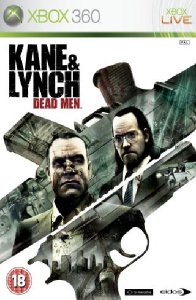
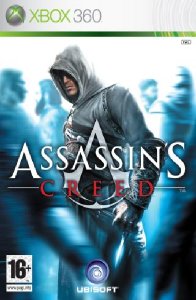
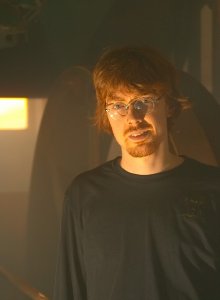
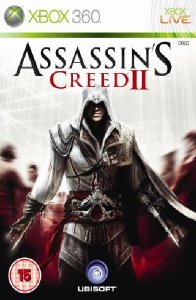
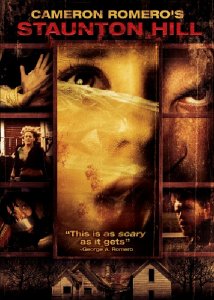
Your Opinions and Comments
Be the first to post a comment!